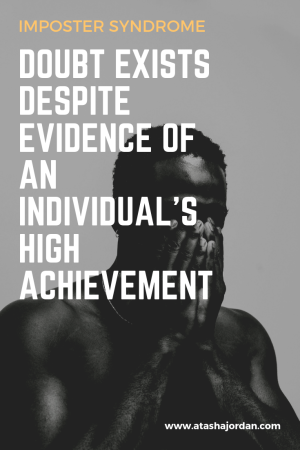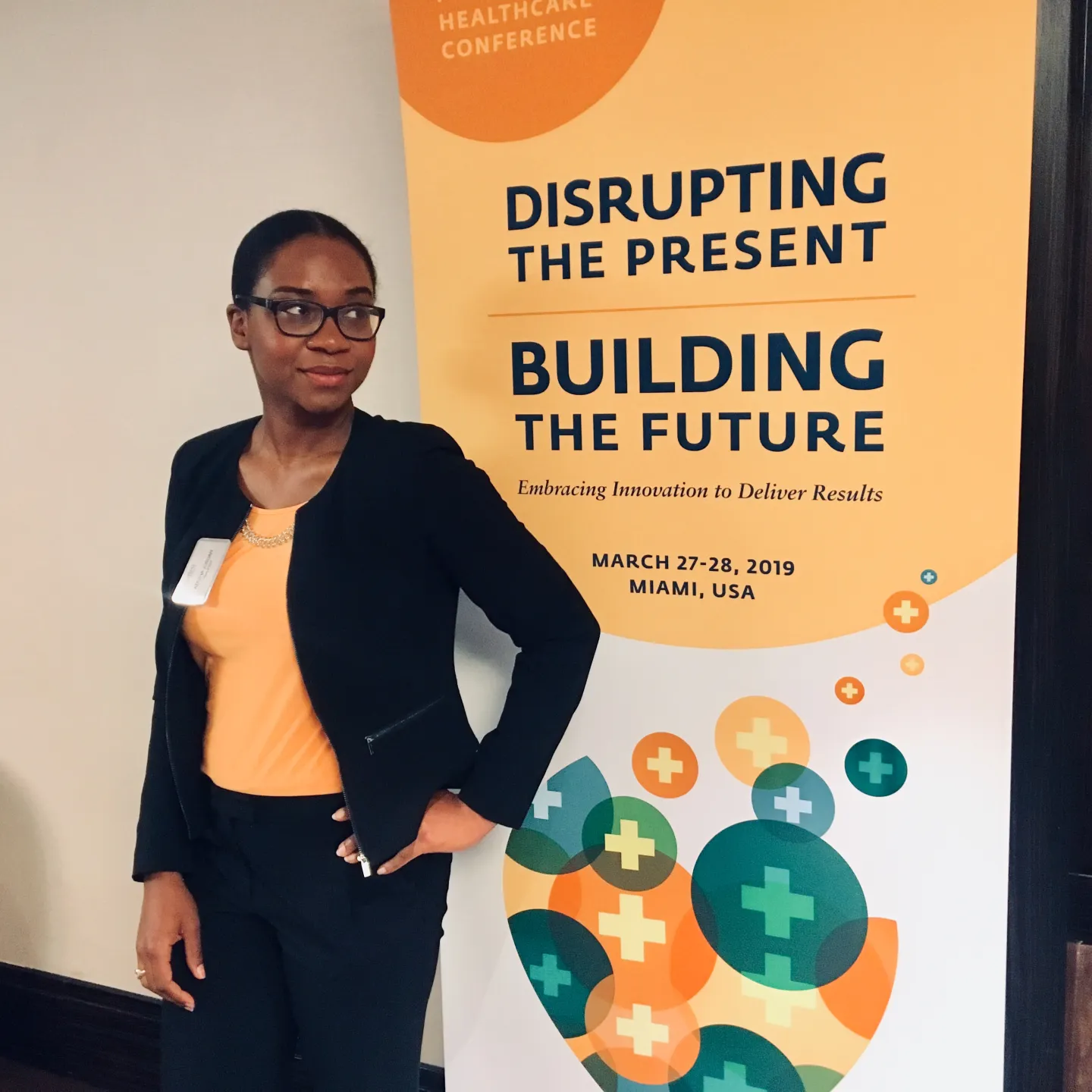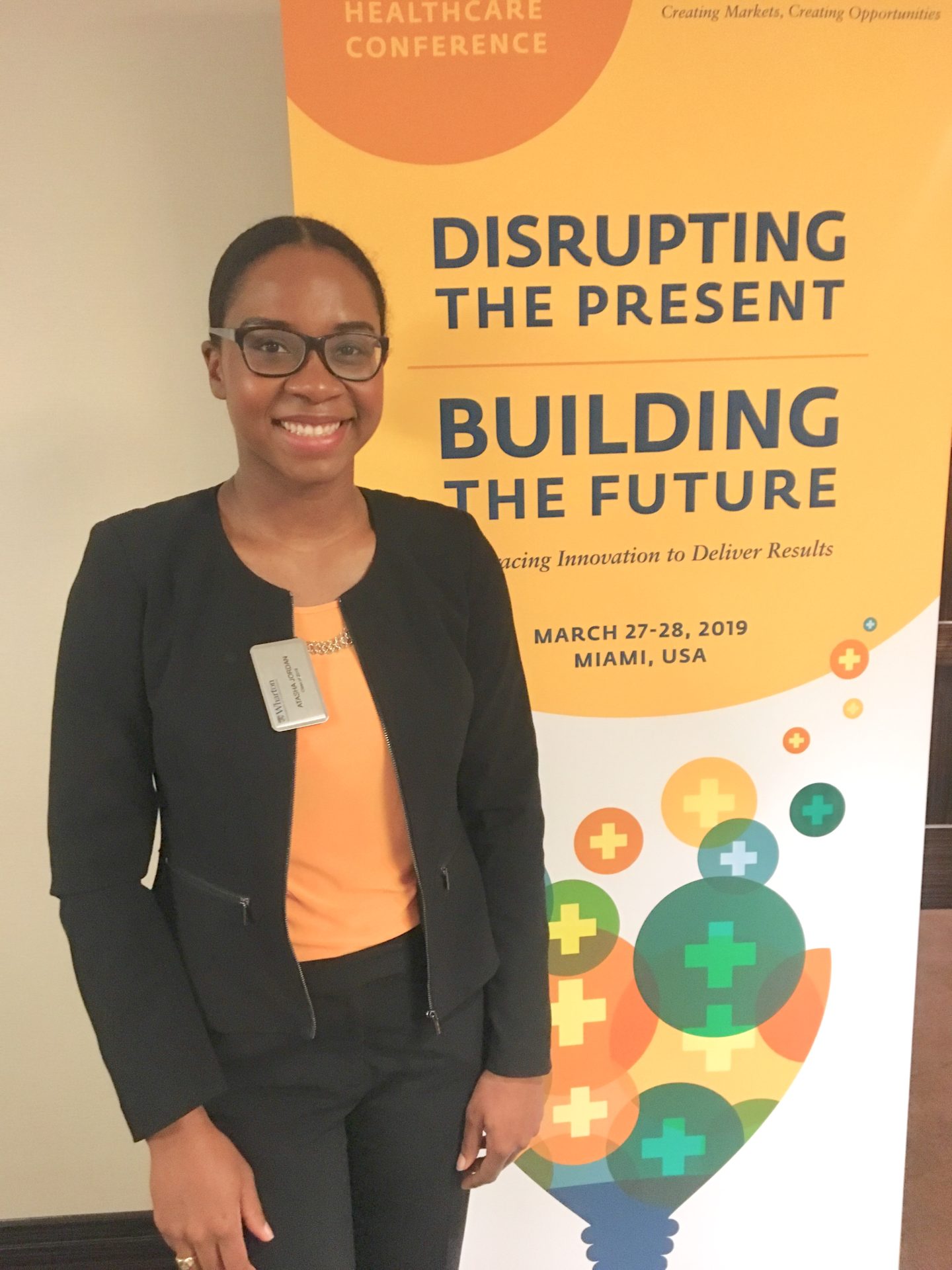This week, I experienced crippling imposter syndrome for the first time in my life.
As a part of a course I’m taking at Wharton, I attended the International Finance Corporation (IFC) Global Private Health Conference. When I arrived in Miami for the conference, I was initially excited to network with all of the amazing conference attendees: global health executives, ministers of health, and many more. However, the experience fostered such strong feelings of imposter syndrome that I soon found myself at the beach – my safe space – to find a moment to re-center.
WHAT IS IMPOSTER SYNDROME
Imposter syndrome manifests as feelings of inadequacy and non-belonging. Imposter syndrome often arises when such feelings are not warranted; doubt exists despite evidence of an individual’s high achievement. Research shows that certain groups of people are more likely than others to experience imposter syndrome. Specifically, minority groups, whether in institutions of higher learning or in the workplace, experience negative mental health impacts as a result of imposter syndrome.
Though marginalized groups tend to experience imposter syndrome at higher rates, imposter syndrome can happen to anyone, at any time.

HOW PEOPLE OR ORGANIZATIONS INVOKE IMPOSTER SYNDROME IN OTHERS
CREATING HOMOGENOUS SPACES
Homogeneity presents in the form of race, age, cultural, professional, or gender-based sameness. Homogenous spaces are comfortable for the people who meet the group’s mold. Meanwhile, this same homogeneity is the perfect breeding ground for imposter syndrome for those who feel “othered” but still hope to participate in these homogenous spaces.
DIFFERENTIAL TREATMENT OF “OTHER” GROUPS
Feelings of non-belonging (i.e. imposter syndrome) can occur when certain people receive treatment that is different from the established culture of a group. Whether purposeful or accidental, differential treatment within groups triggers imposter syndrome. Individuals feel unwelcomed and inferior when they are not treated equally.
OVERCOMING IMPOSTER SYNDROME – GENERAL TIPS
1) POSITIVE SELF-TALK
In a post on the Cognitive Behavioral Therapy Triangle, I talk about how thoughts impact behaviors and emotions. Positive self-talk has the potential to empower you beyond your own perceived limits. By telling yourself that you can do anything, you decrease the likelihood of feeling inferior in uncomfortable scenarios.
2) BE PREPARED; ANTICIPATE UNCERTAINTY
For this conference, I did my best to prepare ahead of time. I researched the agenda and planned to arrive at lunchtime, which I thought would make an easy transition. I read up on some of the latest literature on the topic of the private sector’s role in healthcare. I practiced some talking points related to the topic. What I didn’t do, however, was anticipate uncertainty. My visions of seamlessly mixing and mingling with other conference attendees never manifested because I hadn’t prepared for a scenario where I wouldn’t know where to go or when. My lack of preparation for uncertainty ignited imposter syndrome. I was flustered and quickly felt as though I didn’t belong.
3) MAKE LARGE SITUATIONS FEEL SMALL
Introverts are more likely to feel uncomfortable in large groups of people. I’m certainly an introvert, but usually, I combat this by finding a way to make large situations feel small. In hindsight, I should have relied on this tried and true tactic. I might have had an easier time blending into the conference activities if I tried to insert myself into a small group, rather than trying to tackle the conference as a whole.
4) FIND AN ALLY
When feelings of imposter syndrome arise, it is unlikely that you are the only person in that scenario with similar feelings. In trying to overcome imposter syndrome, work to find people who are similar to you, or find someone who can connect you with others. In my case, I later learned that there were a few other conference attendees who were in their 20s. Additionally, I could have put in more effort to find my professor, who certainly would have introduced me to some of his colleagues.
HOW I OVERCAME MY FEELINGS OF IMPOSTER SYNDROME
On the first day I arrived at the conference, I tried my best to push myself past my imposter syndrome. I hung around the conference area for a while, waiting to feel more comfortable as time passed. However, the feelings only got worse as middle-aged (or older) men and women continued to pass by, often with seemingly quizzical looks. I didn’t know where to go or which conversation to butt into first. I’d received neither a nametag nor an agenda; I felt quite lost in a sea of hundreds of professionals. Despite my internal dialogue to push through the discomfort, I physically couldn’t withstand it. Within a few minutes, I found myself changed out of my suit and en route to Publix Supermarket for my favorite deli meal, which I planned to eat at the beach.

The moments I took to go to the beach were necessary. My quiet time at North Beach to complete my Miami ritual of eating Publix chicken tenders and potato wedges on the beach brought me back to my center. I did a power pose on the beach. I reminded myself that my experiences in health administration, my soon to be completed MD and MBA, and my knowledge of healthcare in the Caribbean had all prepared me for this moment. Was I young? Yes. Did I do a minor in Global Health and Health Policy in college? Yes. Had I worked for 20+ years in the global health space? No. But I was ready to dialogue with anyone interested in global health issues – a topic that I consider deeply important. So, as I sat on the beach, enjoying my Publix lunch, I vowed that I wouldn’t allow the next day of the conference to be the same.
As the next day of the conference arrived, I was newly armed with the comfort of some familiarity. The other students in my global health class had arrived in Miami. We now had a strong contingent of young, bright, eager Penn students. On top of that, the professor for my course did an amazing job of making it clear to the conference attendees (the “big wigs”) that the students were to play an integral role in the day’s workshop sessions. From there, I had a great day learning from and engaging with some amazing people from all over the world because what we shared in common was more important than any of our differences. We were all eager to discourse on how the private sector could play a role in the establishment of universal healthcare in emerging markets. Because of this shared passion, no one was an imposter.

Have you ever felt feelings of imposter syndrome? How did you overcome it? Leave a comment below!
Peace and blessings,
Atasha Jordan, MD (to be)
P.S. I ALWAYS get questions about the blazer in this post, and although I usually shop for items on sale, I found this collarless, zip-up blazer at Macy’s! It’s my go-to blazer because it’s super comfortable and goes with everything!






